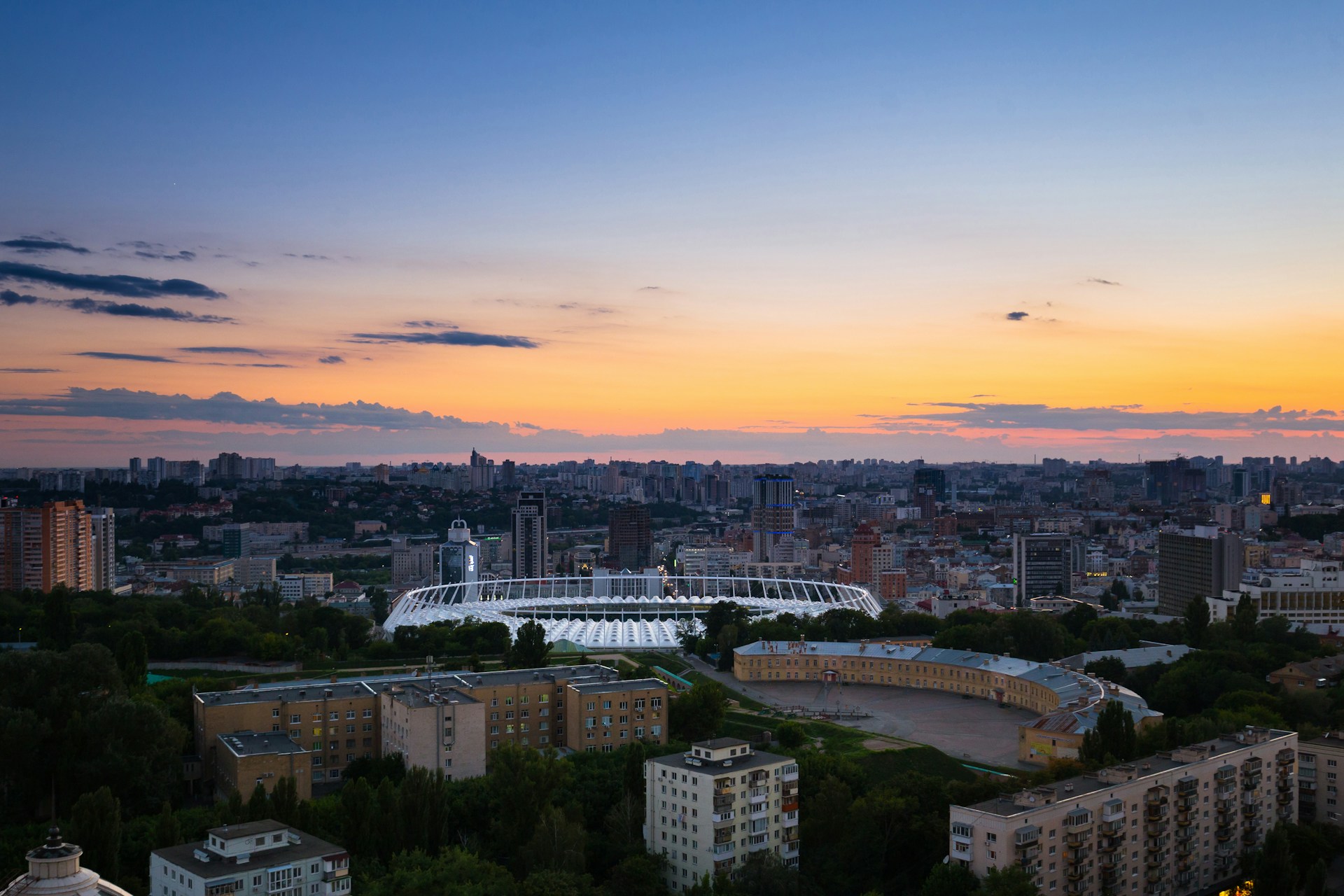The democratic world vows to support Ukraine for “as long as it takes.” While it sounds strong, what does this really mean?
The public discourse focuses on two options. In the worst case, it’s an excuse for inaction in a futile hope to wait Russia out (until Putin dies, Russian peoples/elites overthrow him, or a Tinker Bell arrives and installs Peter Pan as Russia’s next president). In the best case, it means providing Ukraine with enough weapons to attain a better negotiation position in future peace talks. Both approaches are wrong. Even if Putin dies (which is unlikely in the near future), the Russian population is overwhelmingly supportive of the war, and the Russian ‘liberal opposition’ has no chance of gaining or sustaining power because they do not represent anyone but themselves. Remember that Germany and Japan in the 1940s became democratic only after they were defeated, occupied, and effectively governed by the allies for quite some time.
Talks about negotiations or a “frozen conflict” are pointless and dangerous. Russia will not exchange any Ukrainian territories for peace because it does not need territories – it wants to destroy the Ukrainian nation. Putin has been quite open about that at least since 2011. But the destruction of Ukraine is just the first step in Russia’s plan to restore the Russian Empire and fulfill its centuries-long “historical mission” of destroying the “decadent West.” (Note that Ukrainian armed forces secured the “grain corridor” without any negotiations with Russia. So when there is no fear, the right decisions can be not only adopted but also enforced).
Russia’s war on democracies is not open warfare yet. It is in a hybrid form of supporting far-right parties and populists in the West, meddling in elections, deepening cleavages within and between countries, proliferating disinformation, monopolizing critical markets such as energy, and corrupting the elites (as Putin’s early promoter Borys Berezovsky once stated, “why should I buy a factory if it is cheaper to buy a factory director?”). Le Pen, Schroder and Kneissl are just a few visible cases of thousands of European and American politicians bought by Russia. The Kremlin is active in other arenas too. For example, employing companies like the Wagner group, Russia uses brute force in Africa to challenge the rules-based global order.
Russia has already found ways to circumvent sanctions and get the necessary parts and equipment for weapons. It is waiting for the West to “get tired” of the war and for government changes in democracies to take place. Specifically, Russia very much hopes to reinstate Trump into the White House in 2024 and has been promoting this goal in both traditional and social media. Moreover, China and Iran already support Russia with weapons, and this support will likely increase.
Looking at this wider picture, it is clear that the relevant question is “How to deprive Russia of the ability to wage war?” As soon as we acknowledge that this is the only question that matters, the answer becomes quite clear:
- provide Ukraine with all the weapons it needs, including warplanes and long-range missiles, without any conditions (e.g. destruction of Russian planes at their base airports is much more efficient than trying to intercept the missiles which they launch; destruction of Russian weapon-producing plants is much more efficient than destroying these weapons in the battlefield);
- be serious about sanctions. Russia should be completely isolated. This includes cutting it off from receiving equipment and software (and enforcing these bans!), ordering all the businesses that still remain in Russia to exit (their assets will be sooner or later confiscated by the Russian state anyway), including Russia into the FATF black list and recognizing it as a terrorist state;
- ban Russian media and pay close attention to NGOs and political organizations that receive Russian money and promote Russian narratives. Proliferation of Russian lies and fakes has nothing to do with freedom of speech.
There are several common arguments against aiming to defeat Russia. All of them are based on false assumptions and/or Russian propaganda. Let us consider them in turn.
Argument 1. Russia’s defeat will lead to uncontrolled proliferation of nuclear weapons. But if Russia is not defeated, proliferation is more likely. First, Russia could already supply Iran with technologies and materials needed to produce a nuclear bomb in the same way as the USSR provided nuclear bombs to China and North Korea. Who can guarantee that tomorrow Russia would not supply nuclear weapons to Taliban or Hezbollah? Second, if today Russia is not punished for launching a genocidal war on Ukraine, tomorrow many more countries will have nuclear weapons because they will see that a country that voluntarily gave up its nuclear arsenal was abandoned when a nuclear state attacked it.
Argument 2. Russia’s defeat will strengthen China, which is the main rival of the West. This argument is based on the false assumption that China and Russia are rivals (“enemy of my enemy is my friend”). In fact, they are allies. One may debate who is a “senior partner” in this partnership, but it is very clear that Russia and China (as well as North Korea and Iran) have a common enemy – democracies (not only the EU and the US but also Korea and Japan). Therefore, defeating Russia will send a clear signal to China and similar regimes that democracies are able to protect their values. On the other hand, allowing Russia to have some benefits from its war on Ukraine will encourage (1) Russia’s attack on other countries (e.g. Kazakhstan) and (2) China’s attack on Taiwan. Attacks of North Korea on South Korea or of Iran on Israel will become more probable too. While we were writing this text, HAMAS attacked Israel, resulting in an outpouring of joy in Russian Telegram channels that rivals their joy at the Russian army killing Ukrainians.
Argument 3. Russia’s defeat will lead to Russia’s partitioning, chaos, and the civil war, which will result in many refugees from Russia in Europe. Perhaps this is an extrapolation of what happened in the Russian Empire when it disintegrated previously – in 1917 and 1991. However, in both cases the disintegration was a good thing: Would it be better if Finland and Poland remained within the Russian Empire after 1917? Would it be better if Ukraine, the Baltic states, Moldova and countries of Central Asia remained within the Russian Empire after 1991? Certainly not.
After both 1917 and 1991 what Russia portrays as ‘civil war’ were in fact the attacks of the Russian Empire on newly emerged independent states. After 1917 the Russian Empire ruled by Bolsheviks attacked Poland in 1919-1921 (Poland won with the help of Ukraine and Belarus), Ukraine in 1918-1922 (Ukraine lost), Belarus in 1918-1920 (Belarus lost), Georgia in 1921 (Georgia lost). After 1991 Russia attacked Moldova in 1992, Georgia in 1993 and then again in 2008, it devastated and occupied independent Ichkeria (which legally exited the USSR in 1990); it tried to attack Ukraine in 1994 and 2003, and then invaded it in 2014. For decades Russia ignited conflict between Armenia and Azerbaijan within its divide ac regulae policy, preventing any attempts to negotiate peace.
If Russia (Moscovia) is deprived of the resources to wage wars, it will likely disintegrate peacefully. Indeed, why would, for example, Yakuts be at war with Buryats instead of building their own states? Even if any territorial disputes do arise, these can be resolved with proper intermediation and the UN will have a chance to show its usefulness. Moreover, the international community will have much more leverage over these new states than it has over today’s Russia: international recognition, technical and financial assistance can be exchanged for peaceful settlement of their borders and giving up nuclear weapons.
Overall, formation of independent states by nations that live in today’s Russia is a desirable outcome. However, it is not guaranteed because Russia’s “inner state” is a mafia-like FSB/KGB network that has remained largely the same since Ivan the Terrible Oprichnina. Putin is just the most visible mushroom of this mycelium. The good news is that many members of this “inner state” have children studying in Western universities, their money in Western banks and their retirement houses on the beaches of Spain and France. This provides some hope that self-interest can steer at least some of them in the right direction.
Since Russia has many more people which it can send to kill and die in Ukraine, we don’t have “as long as it takes.” Ukraine needs much more support now. During WWII the democracies supported Stalin to defeat Hitler, although both regimes were ugly. In Russia’s war against Ukraine the distinction between good and evil is very clear. Any procrastination or “fear of escalation” are just making the evil stronger.
Attention
The authors do not work for, consult to, own shares in or receive funding from any company or organization that would benefit from this article, and have no relevant affiliations




